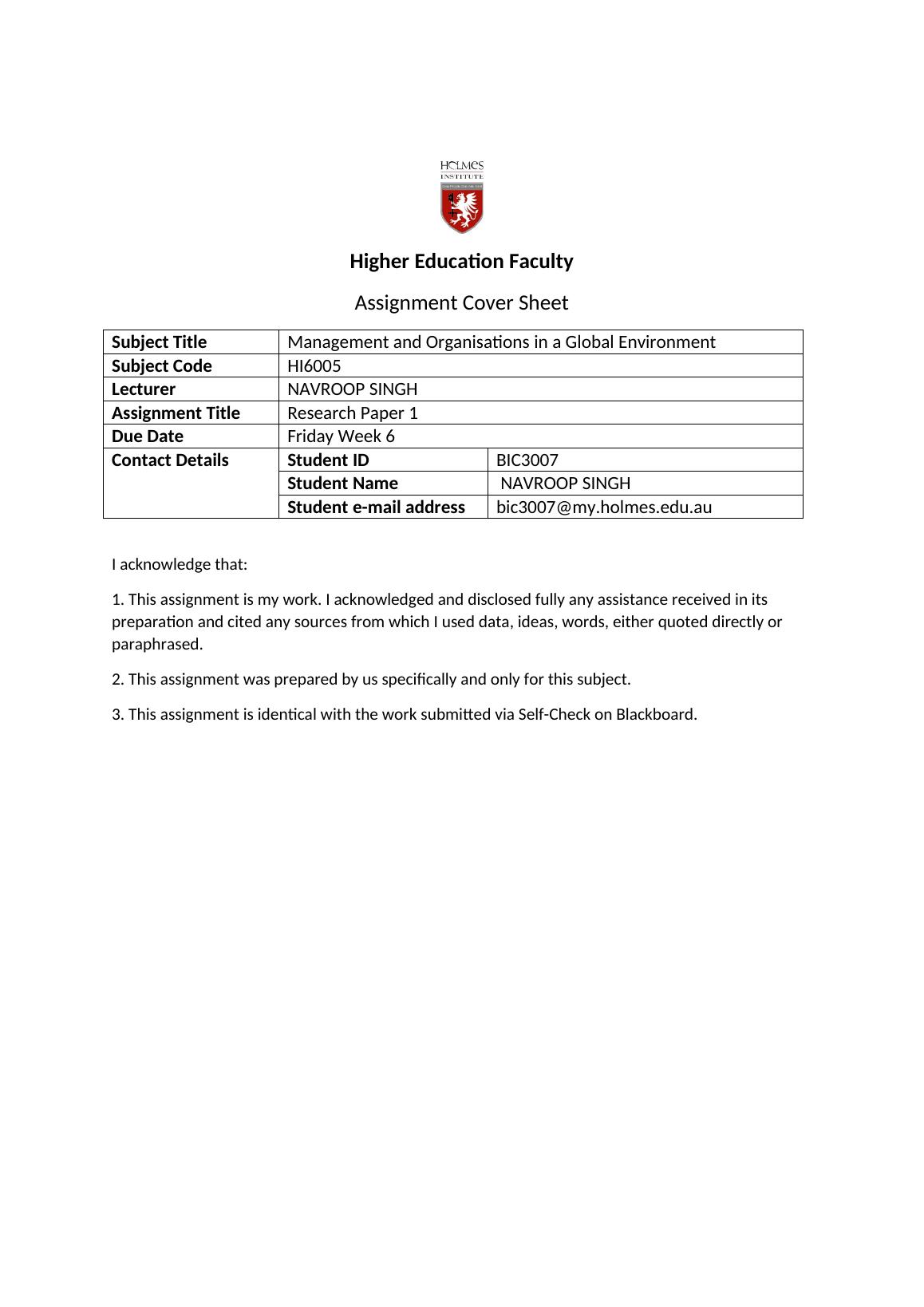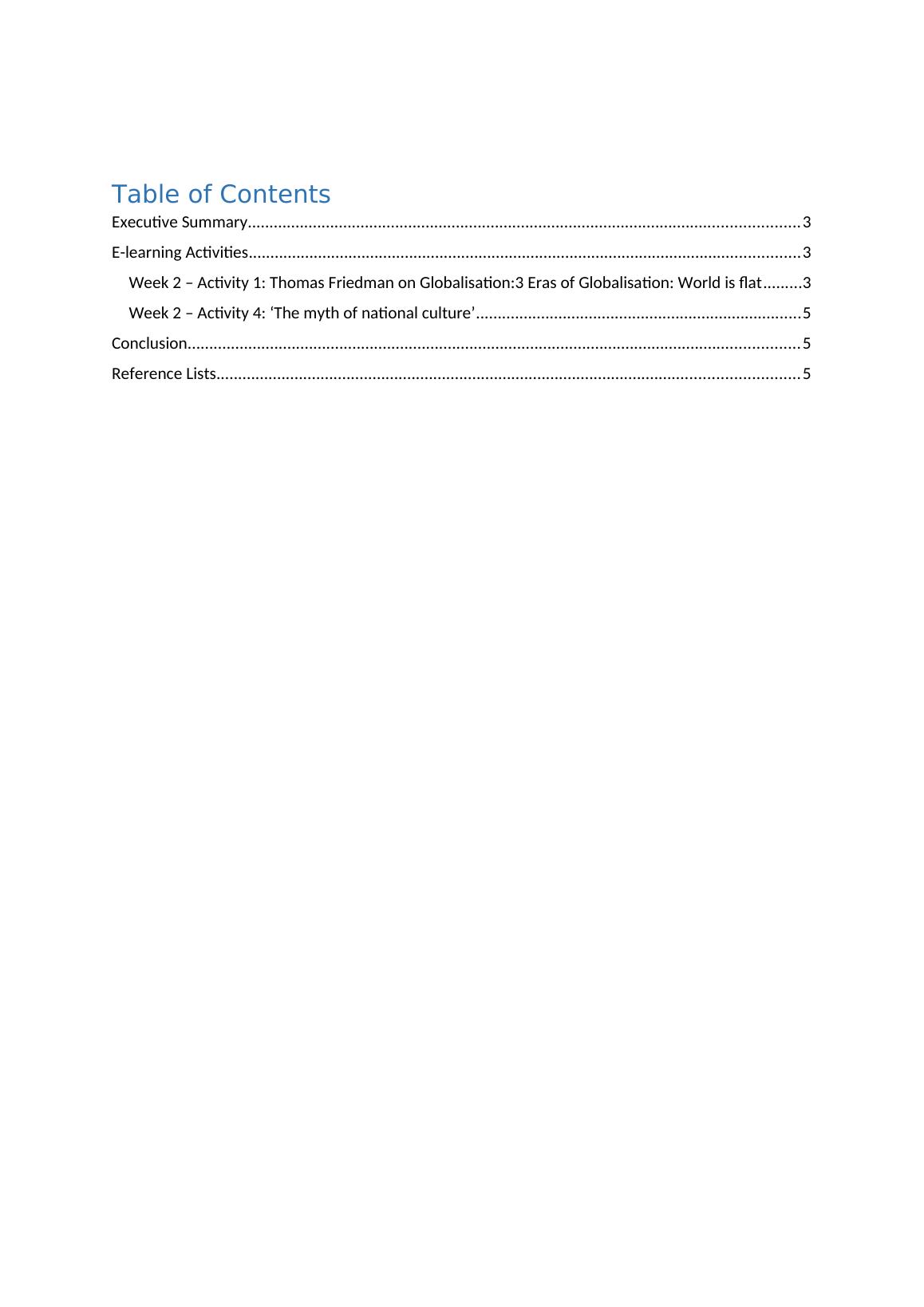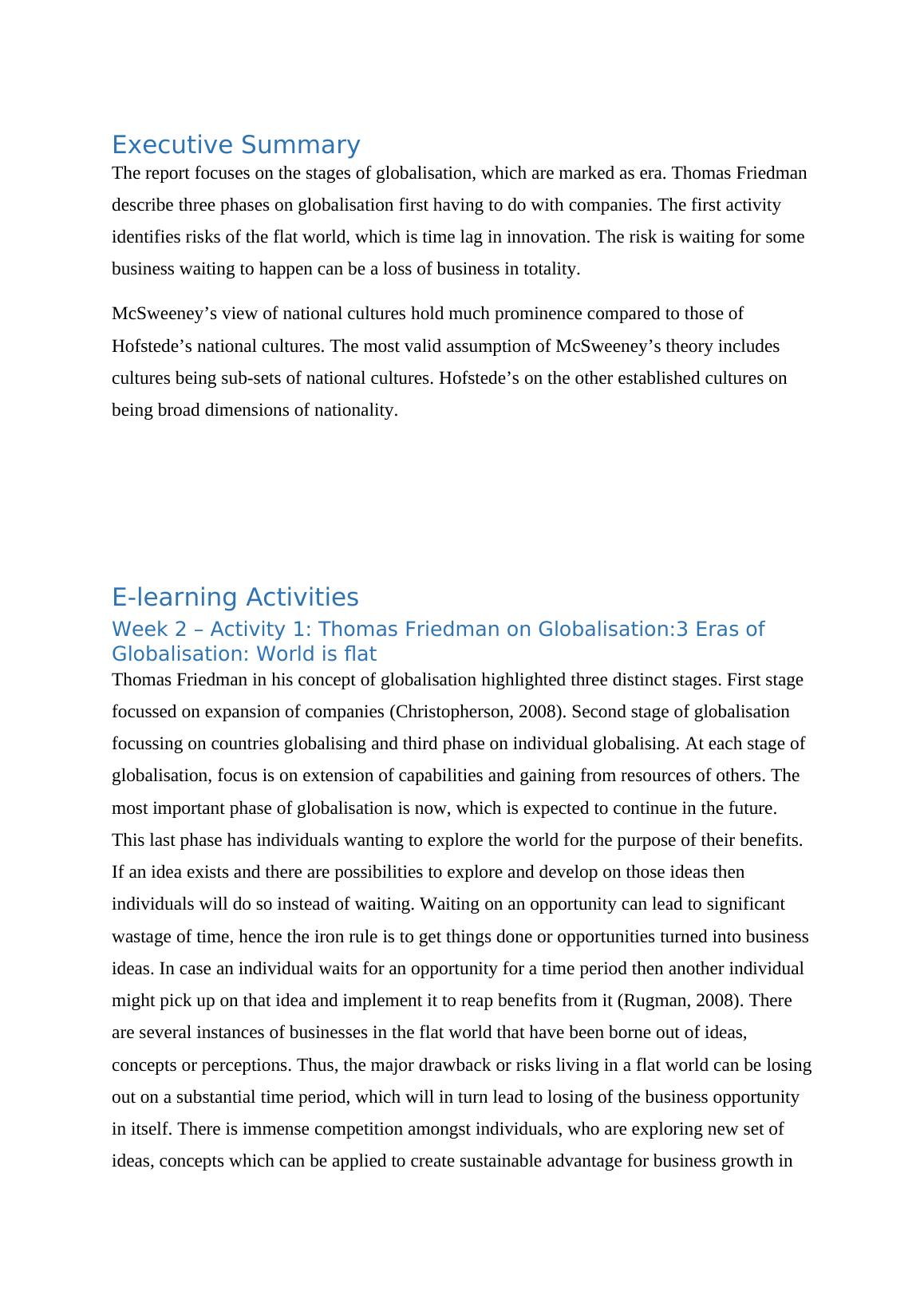HI6005 Management and Organisations in a Global Environment | Holmes Institute
6 Pages1585 Words41 Views
Holmes Institute Sydney
Management and Organisations in a Global Environment (HI6005)
Added on 2020-03-02
About This Document
HI6005 - The report focuses on the stages of globalisation, which are marked as era. Thomas Friedman describe three phases on globalisation first having to do with companies. The first activity identifies risks of the flat world, which is time lag in innovation. The risk is waiting for some business waiting to happen can be a loss of business in totality.
HI6005 Management and Organisations in a Global Environment | Holmes Institute
Holmes Institute Sydney
Management and Organisations in a Global Environment (HI6005)
Added on 2020-03-02
ShareRelated Documents
End of preview
Want to access all the pages? Upload your documents or become a member.
E-learning Activities on Globalization and Organizational Culture
|7
|1557
|465
Hofstede’s Cultural Dimensions and Friedman's Analysis of Globalization
|9
|1822
|184
HI6005 Management & Organisations in a Global Environment
|8
|1672
|269
Management and Organisations in a Global Environment Research Paper
|5
|1727
|300
Report - Management and Organizations in a Global Environment
|5
|615
|42
Higher Education Faculty Assignment PDF
|6
|1243
|24



